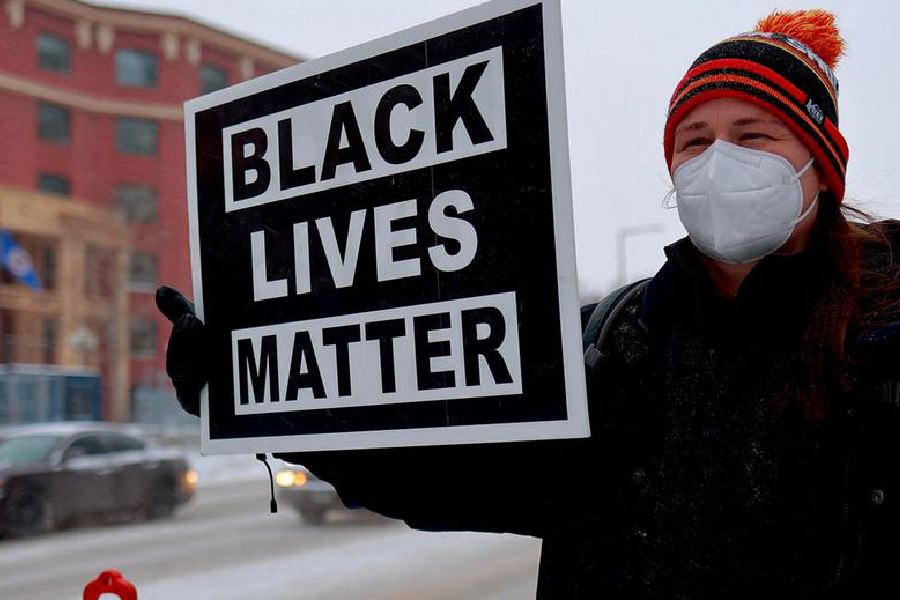A two-year investigation by the US Department of Justice (DOJ) concluded on Friday that the Minneapolis Police Department, responsible for the killing of George Floyd, had a pattern of exercising excessive force and discrimination against Black people.
US Attorney General Merrick Garland announced the investigation's findings at a press conference on Friday.
The Minneapolis Police Department "uses excessive force, including unjustified deadly force" and "unlawfully discriminates against Black and Native American people when enforcing the law," the DOJ concluded.
The investigation was launched in April 2021 after a white former police officer, Derek Chauvin, was convicted of murdering Floyd by kneeling on his neck for over nine minutes as he was handcuffed on the ground.
Floyd's killing in May 2020 sparked nationwide and international Black Lives Matter protests calling for Black people's rights.
President Joe Biden called the findings "disturbing" and reiterated his "urgent" call for Congress to pass "common sense reforms that increase public trust, combat racial discrimination and thereby strengthen public safety."
What did the investigation find?
The investigation concluded that the Minneapolis Police Department (MPD) had even before Floyd's death engaged in a pattern of violating constitutional rights and discriminating against Black and Native American people.
"For years, MPD used dangerous techniques and weapons against people who committed at most a petty offense and sometimes no offense at all," the report said. Police "used force to punish people who made officers angry or criticized the police."
The investigation also said officers in the state "patrolled neighborhoods differently based on their racial composition and discriminated based on race when searching, handcuffing, or using force against people during stops."
What steps have been taken to prevent further violations?
The city and police department agreed to a federal consent decree, a deal that resembles reform efforts adopted in Seattle, New Orleans, Baltimore and Ferguson.
The deal would require police reforms overseen by an independent monitor and approved by a federal judge.
The report also recommends 28 "remedial" steps to reform policing as a prelude to the consent decree.
Federal investigators acknowledged that Minneapolis police and city officials have already begun some reforms.
As per the investigation, police are now prohibited from using neck restraints similar to the one Chauvin used in killing Floyd. Using crowd control weapons is also no longer allowed unless officers secure permission from their chief.
Previously, the Minnesota Department of Human Rights had launched its own investigation and enforced a settlement agreement signed in March to address similar findings.
Terrence Floyd, a younger brother of George Floyd who is now based in New York City, praised the Justice Department's investigation.
"That's how you solve and stop what's going on with law enforcement," he said.










